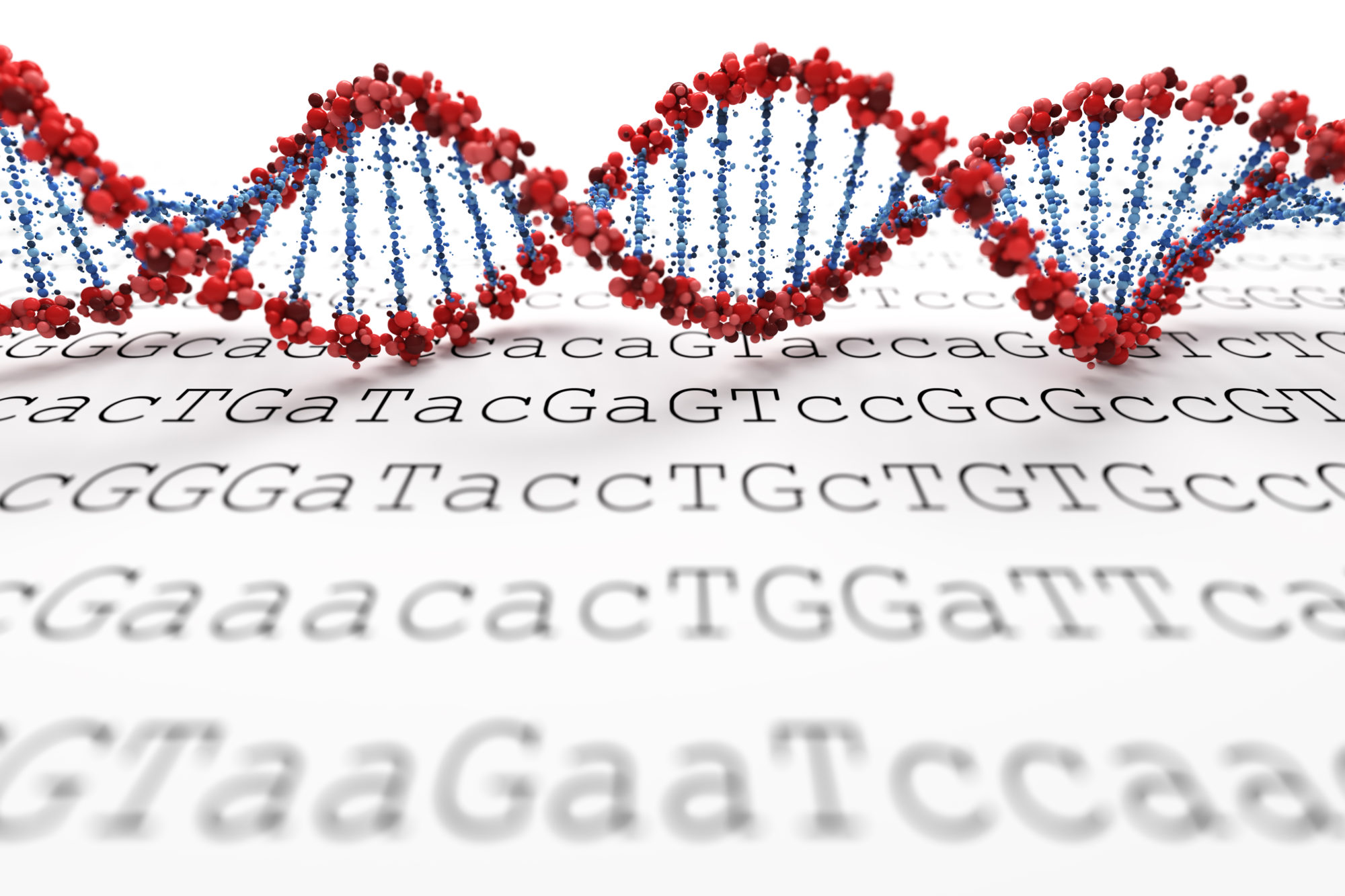How private should your genetic information be? In an age where everything is available at our fingertips, it’s a very important question. While there are valid and lawful reasons for collecting DNA (often in cases of serious felony arrests), your DNA has a number of protections in place that are constitutionally protected.
Simply put, your DNA should only be used for the purpose for which you gave your consent. For victims of crime, particularly those who have their DNA collected voluntarily, the trust in these protections often gives them the courage to speak up.
But, unfortunately, very recently the true safety of victims’ DNA came under questioning when a 2016 San Francisco sexual assault survivor’s DNA from a rape kit was used to link and charge her with a felony property offense.
Thankfully, the charges were ultimately dropped because collecting the victim’s DNA for one purpose and then using it for another was a violation of the Fourth Amendment, a right that safeguards her from unreasonable searches and seizures.
In addition to federal laws, there is also statewide legislation that protects private citizens in most circumstances. To better understand how DNA could be used in this way, let’s look a little closer at the different laws and regulations required of government and non-government databases and take another look at victims’ rights.
GENETIC INFORMATION PRIVACY: THE LAWS APPLYING TO FEDERAL, LOCAL POLICE, AND GENEALOGY DATABASES
While constitutional rights protect us to a great degree, privacy considerations have been understandably in need of updating for the digital age. Fortunately, the Fourth Amendment has stood the test of time in this way. So, how does the Fourth Amendment apply to DNA?
When it comes to DNA, there is a limit to which DNA profiles can be added by federal, state, and forensic laboratories. Known as CODIS (Combined DNA Index System), the emphasis is on supporting criminal justice, not exposing victims to exposure when they’ve already felt exposed and voluntarily given their DNA.
The Fourth Amendment specifically bars this invasion of privacy, as outlined in a University of Cincinnati Law Review titled, Applying the Fourth Amendment When DNA Collected for One Purpose is Tested for Another. The review states:
“By limiting the zone of a DNA search to the information that is exposed to the analyst, privacy interests in unrevealed genetic information will be preserved. Thus, the Fourth Amendment would require a warrant or an applicable warrant exception before a DNA sample can be retested for additional genetic information.”
If your genetic privacy is violated in this way, you have many rights, including a Proper Defense. But while federal laws seem to offer adequate protection, is genetic information protected under California law? This question has come to the forefront in many minds after the aforementioned misuse of DNA in a database to convict a sexual assault victim of an unrelated crime years later.
Because federal laws don’t outline it specifically, local police databases have come under fire for using rape victims’ DNA for the purposes of investigating unrelated crimes. Fortunately, recent laws in California have tackled genetic privacy issues to protect citizens, titled the Genetic Information Nondiscrimination Act (California SB 41.) The law, which recently went into effect in January of this year, not only seeks to bridge the gap of existing federal and state requirements around law enforcement databases but bridges the gap in commercial online DNA privacy laws.
If you already participate in online genetic testing, you may be wondering: can DNA be used without consent, or more specifically, can your DNA be used against you? Not anymore, at least not without your knowledge! SB 41 now requires all direct-to-consumer genetic testing companies (these include sites like Ancestry.com and 23andMe) to provide consumers with the “company’s policies and procedures for the collection, use, maintenance, and disclosure [of DNA].”
Further, under the updated protections provided by this law, you can revoke your consent, and seek civil penalties in cases where your DNA privacy was violated in any way.
While these protections are comforting, there is a balance between protecting the privacy of private citizens and protecting the public interest. With this in mind, when can your DNA be taken without consent? Or, more specifically, when can police collect DNA without consent?
According to Prop 69, voted into law in November 2004, you can have your DNA taken if arrested for a felony or very select serious misdemeanor convictions (a.k.a. select wobblers). While you are not able to refuse the DNA test at arrest, you can later request it to be removed with an expedited expungement form if you were not charged or convicted of a felony or only received a misdemeanor conviction (and do not have a prior felony), and are not a registered arson or sex offender. For more information about how Proper Defense can help you with related expungements for misdemeanor and felony convictions, see our pages on Discretionary Expungements and Non-Discretionary Expungements.
VICTIMS’ RIGHTS IN MORE DETAIL: A NUMBER OF HELPFUL RESOURCES, PROTECTIONS & A PERSONAL STORY
As mentioned in this previous post on the subject and this dedicated page to Victims’ rights, it is vitally important that proper representation is available to those who have become direct or indirect victims of crime. At Proper Defense, we ensure victims have the protections and resources to which they are entitled. Once someone has been harmed by crime, they may be left feeling extremely vulnerable. Fear, sleeplessness, anxiety, and confusion are all feelings experienced by victims of crime.
Many run into facing a legal system that seems to only be accessible and useful to attorneys and judges and this can further traumatize them. Let’s further discuss the story above where a sexual assault survivor was arrested for a crime based on her DNA from a rape kit.
The woman, who chose to remain anonymous, told the San Francisco Chronicle that being arrested for an unrelated crime years later felt violating, isolating and left her not knowing where to turn.
“When you feel like you have nobody to talk to about it, it’s a lonely feeling…” she told reporters, “If I can’t even trust the police… who can I trust?”
This story is all too common for victims, and we are fortunate to have this documented case of the direct experience of a sexual assault victim. Lawyer representation gives you the vital foundational support you need to realize justice, especially when you need to be able to trust in having a true advocate again.
Civil rights attorneys in California like Proper Defense can help you file a lawsuit (as did the victim above through her attorney.) But most importantly, we are there to support you. After all, being victimized has already impacted you, emotionally and physically. Going through the criminal process should not add to that pain. With an experienced victim’s advocate by your side, rest assured you will not feel revictimized by the system. Instead, you will feel protected, understood, and in the know about what is happening and what to expect every step of the way.
NAVIGATE YOUR PRIVACY AND VICTIMS’ RIGHTS SUCCESSFULLY WITH PROPER DEFENSE
At Proper Defense, we know navigating a complex legal system when you’ve already been traumatized is something no one should ever have to do, especially as the victim or loved one of a victim of crime. But even though the process can be emotionally draining, disempowerment doesn’t have to be a given!
At Proper Defense, we give you peace of mind and sound guidance to remind you of the personal power you have to move forward from this situation — stronger than ever.
For a true advocate that you can trust, in a judgment-free zone, contact Proper Defense Law Corporation today. For a FREE consultation in the Fresno area, call (559) 825-3800. You can reach us at our Beverly Hills location by calling (424) 284-4066. You can also schedule an appointment online on our Contact Us page. It gets better with Proper Defense, we promise.
Rest assured you can end your search for “sexual assault survivor attorney California”, or “civil rights attorney near me” (Los Angeles, Fresno, Hanford, Los Angeles, Madera, Merced, Tulare, Visalia, and Orange County are all areas we serve.)
Additional resources can be found through these searches: DNA used against rape victim story, genetic privacy act, does ancestry sell your DNA, “Which states have genetic privacy laws?”, “Do you have any privacy rights to your genetic material?”, “What is sb41?”, “What legislation did the US government pass to protect the privacy of genetic information?”, “Why you shouldn’t do a DNA test?”, “Is DNA testing an invasion of privacy?”, “Are DNA tests private?”, DNA collection laws by state, obtaining DNA without consent, mandatory DNA collection, pros and cons of genetic privacy, “Can you refuse a police DNA test?”, “Can police force DNA sample?”, California genetic information privacy act, state genetic privacy laws, or genetic information nondiscrimination act.








